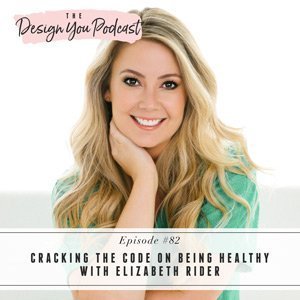
Friends, optimal health and wellness is one of my ultimate goals for this year, and I’m sure many of you are in a similar boat. That said, constantly striving to be healthy and the disappointment of falling off the wagon or off your plan can be frustrating and demotivating. If you’re ready to stop struggling or stop coming up with excuses for why you can’t be healthy, you’re going to love today’s episode.
I have Elizabeth Rider on the podcast this week and we’re discussing her new book called The Health Habit, which you need to go out and grab if you’re ready to feel healthy without another crazy extreme diet or detox or plan that you’ll never be able to sustain. Elizabeth is a nutrition and wellness expert who teaches women how to be their most healthy and successful, and you are absolutely going to love her.
Join us this week as we dive into Elizabeth’s new book! She shows us a new way to go after our desired goals in an actionable way without giving up our freedom, whilst creating healthy habits that are so straightforward and simple you could start today.
If you want to keep this conversation going, you have to join my free Design You Podcast community on Facebook. We have great conversations over there about the podcast episodes and our podcast guests are in there too! So head on over and I’ll see you there!





